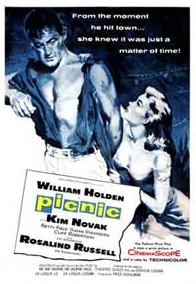“T” For
Texas, “T” For Trouble, “T” For Well You Get The Idea, “T”-William Holden And
Glenn Ford’s “Texas” (1941)-A Short Film Review
DVD Review
By Lance
Lawrence
Texas,
starring William Holden, Glenn Ford, 1941
[In a recent
introduction to this new series, a series based on short film reviews for films
that deserve short reviews if not just a thumb’s up or down I noted that Allan
Jackson, the deposed previous site manager, required his film reviewers to
write endlessly about the film giving the material an almost cinema studies
academic journal take on it. That caused a serious decline in the number of reviews
over the years which I hope to make up with a flurry of snap reviews for busy
people. To see in full why check the archives for November 28, 2018- Not Ready For Prime Time But Ready For Some
Freaking Kind Of Review Film Reviews To Keep The Writers Busy And Not Plotting
Cabals Against The Site Manager-Introduction To The New Series Greg Green]
******
Hold it I am
not going to talk about red state Texas, nor about rising star in some quarters
of Beto O’Rourke, nor even about the oil-rich Texas of the 1950s Giant which made James Dean’s short
career resume blossom and solidified Rock Hudson as a matinee idol (his subsequent
tragic fate, his coming out of the closet with his AIDS announcement does not
take away from that 1950s status). No, today we are going back to post-Civil War
Texas (which was rebel gray) and the big-time cattle drives that drove that
state’s economy well before the oil came gushing out of the ground in the film Texas. We will look at the fortunes of a
couple of defeated “Johnny Rebs” trying to make their young ways in the world
after their lost cause had been defeated.
The story
line hinges on the exploits of Todd, played by Glenn Ford last seen in this
space trying to make time with B-movie queen Gloria Grahame very married to a
bad ass guy whom she hates but will not give her up and Dan, played by William
Holden last seen in this space face down in Norma Desmond’s swimming pool in
the high numbers end of Sunset Boulevard in the film of the same name. No, that
is not right on the Holden sighting, last seen snapping his provocative jazz
beat fingers at provocative come hither Kim Novac in Picnic. They leave the war-weary South to try their luck in Wild
West, wide open lawless, or rather make your own law with a gun Texas. Which at
the start get them into a series of semi-comic escapades around a stage robbery
and end with them on opposites sides in the cattle wars-Todd as the “good guy”
herd driver to an insatiable market and Dan as the “bad guy” rustler.
Naturally
something has to give, despite their comradeship, and in the end Dan had to go
down, had to take the bullet from guys who wanted the whole cattle business to
themselves leaving not only “Rustlin’ Dan” out of the picture but Todd as well.
RIP Dan, RIP. Oh, wait a minute did I mention, silly me, the love angle. Dan
and Todd both were smitten by the same woman, the oddly named “Mike,”
hard-headed and independent daughter of a rancher. You know in the end only one
guy can be left standing-and there was only one. Dan might have rued his exit,
might have asked for a better ending that a few spare bullets to his body but
that was the way it was in Wild West Texas. Short enough, Greg?

